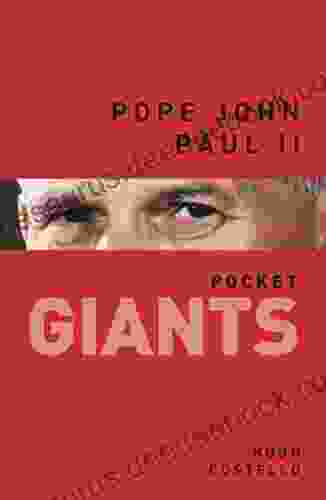Process Philosophy and Autopoietic Perspectives: SpringerBriefs in Business

Process philosophy and autopoiesis are two theoretical frameworks that have gained increasing attention in recent years due to their potential to provide novel insights into the nature of organizations and their interactions with the environment. Process philosophy emphasizes the dynamic and ever-changing nature of reality, while autopoiesis focuses on the self-organizing and self-referential nature of living systems. This article explores the key concepts of process philosophy and autopoiesis and discusses their implications for understanding organizations and their relationships with the environment.
Process Philosophy
Process philosophy is a philosophical approach that views reality as a continuous process of becoming, rather than as a static, unchanging entity. According to process philosophy, everything is in a state of constant flux and change, and the universe is constantly evolving and unfolding. There are no permanent or fixed entities in process philosophy; instead, all things are in a state of perpetual becoming.
4.5 out of 5
| Language | : | English |
| File size | : | 889 KB |
| Text-to-Speech | : | Enabled |
| Screen Reader | : | Supported |
| Enhanced typesetting | : | Enabled |
| Word Wise | : | Enabled |
| Print length | : | 219 pages |
One of the key concepts in process philosophy is the idea of "processuality." Processuality refers to the idea that all things are in a state of constant change and becoming. There is no static or unchanging state of being, and everything is constantly evolving and developing. This concept is in contrast to the traditional view of reality as a collection of fixed and unchanging entities.
Another key concept in process philosophy is the idea of "panpsychism." Panpsychism is the view that all things have a degree of consciousness or mind. According to panpsychism, consciousness is not limited to humans and other animals, but is present in all things, including plants, rocks, and even subatomic particles. This concept is in contrast to the traditional view of consciousness as a purely human phenomenon.
Autopoiesis
Autopoiesis is a biological theory that describes how living systems are self-organizing and self-referential. According to autopoiesis, living systems are composed of a network of interconnected components that interact with each other in a way that maintains the system's identity. The system's components are constantly changing and being replaced, but the overall structure and organization of the system remains the same.
One of the key concepts in autopoiesis is the idea of "autopoiesis." Autopoiesis refers to the idea that living systems are self-organizing and self-referential. They are able to maintain their own identity and organization, even in the face of changing environmental conditions. This concept is in contrast to the traditional view of living systems as being controlled by external factors.
Another key concept in autopoiesis is the idea of "closure." Closure refers to the idea that living systems are closed to the outside world. They are able to maintain their own identity and organization, even in the face of changing environmental conditions. This concept is in contrast to the traditional view of living systems as being open to the outside world.
Implications for Organizations
Process philosophy and autopoiesis offer a number of important insights into the nature of organizations and their relationships with the environment. First, process philosophy emphasizes the dynamic and ever-changing nature of organizations. Organizations are not static entities, but are constantly evolving and adapting to their changing environment. This concept challenges the traditional view of organizations as being fixed and unchanging.
Second, autopoiesis emphasizes the self-organizing and self-referential nature of organizations. Organizations are not simply passive recipients of external influences, but are active agents that shape their own destiny. This concept challenges the traditional view of organizations as being controlled by external factors.
Third, process philosophy and autopoiesis suggest that organizations are not closed systems, but are open to the outside world. They are constantly interacting with their environment and exchanging information and resources. This concept challenges the traditional view of organizations as being isolated from their environment.
Process philosophy and autopoiesis offer a number of valuable insights into the nature of organizations and their relationships with the environment. These theoretical frameworks challenge traditional views of organizations as static, unchanging, and closed systems. Instead, they emphasize the dynamic, self-organizing, and open nature of organizations. This new understanding of organizations has important implications for the way we think about management and organizational change.
4.5 out of 5
| Language | : | English |
| File size | : | 889 KB |
| Text-to-Speech | : | Enabled |
| Screen Reader | : | Supported |
| Enhanced typesetting | : | Enabled |
| Word Wise | : | Enabled |
| Print length | : | 219 pages |
Do you want to contribute by writing guest posts on this blog?
Please contact us and send us a resume of previous articles that you have written.
 Book
Book Page
Page Reader
Reader Library
Library Paperback
Paperback Newspaper
Newspaper Paragraph
Paragraph Shelf
Shelf Glossary
Glossary Bibliography
Bibliography Preface
Preface Footnote
Footnote Codex
Codex Library card
Library card Biography
Biography Autobiography
Autobiography Reference
Reference Encyclopedia
Encyclopedia Dictionary
Dictionary Thesaurus
Thesaurus Narrator
Narrator Character
Character Librarian
Librarian Catalog
Catalog Card Catalog
Card Catalog Borrowing
Borrowing Stacks
Stacks Archives
Archives Periodicals
Periodicals Scholarly
Scholarly Reserve
Reserve Academic
Academic Reading Room
Reading Room Rare Books
Rare Books Special Collections
Special Collections Literacy
Literacy Study Group
Study Group Dissertation
Dissertation Awards
Awards Theory
Theory Serge Alfonse
Serge Alfonse Evelyne Johnson
Evelyne Johnson Debra K Fileta
Debra K Fileta Reina Torres
Reina Torres Hiroshi Motomura
Hiroshi Motomura Max Weber
Max Weber Sheila Sweeny Higginson
Sheila Sweeny Higginson Tash Skilton
Tash Skilton Starr M D
Starr M D Andrew Brown
Andrew Brown Tracy Taylor
Tracy Taylor Jf Lee
Jf Lee Lawrence Weschler
Lawrence Weschler Alison Weir
Alison Weir Chris Blake
Chris Blake Sandi Lynn
Sandi Lynn Sergio Troncoso
Sergio Troncoso Petrina Purser
Petrina Purser Mark Polanzak
Mark Polanzak Kirstin Lenane
Kirstin Lenane
Light bulbAdvertise smarter! Our strategic ad space ensures maximum exposure. Reserve your spot today!

 Dale MitchellSimplified Guide To Winning Trade Plans: Maximize Profit And Build Passive...
Dale MitchellSimplified Guide To Winning Trade Plans: Maximize Profit And Build Passive... Christian CarterFollow ·10.3k
Christian CarterFollow ·10.3k Jack LondonFollow ·11.5k
Jack LondonFollow ·11.5k Allan JamesFollow ·17.5k
Allan JamesFollow ·17.5k Demetrius CarterFollow ·14.8k
Demetrius CarterFollow ·14.8k Spencer PowellFollow ·2.7k
Spencer PowellFollow ·2.7k Franklin BellFollow ·10.7k
Franklin BellFollow ·10.7k Natsume SōsekiFollow ·13.3k
Natsume SōsekiFollow ·13.3k Ivan CoxFollow ·15.3k
Ivan CoxFollow ·15.3k

 Gary Reed
Gary ReedWeb to Web for Beginners: A Comprehensive Guide to...
In today's interconnected world, websites...

 Elliott Carter
Elliott CarterThe Moon Is Down: John Steinbeck's Poignant Portrait of...
In the annals of literature, John...

 Dalton Foster
Dalton FosterMark The Mechanic: The Incredible Story Of A Young...
In the vibrant realm of robotics, where...

 Fred Foster
Fred FosteriPhone 13 Pro Max User Guide: Everything You Need to Know
The iPhone 13 Pro Max...

 Rodney Parker
Rodney ParkerPope John Paul II: The Pocket Giant Who Inspired Millions
Pope John Paul II, or...
4.5 out of 5
| Language | : | English |
| File size | : | 889 KB |
| Text-to-Speech | : | Enabled |
| Screen Reader | : | Supported |
| Enhanced typesetting | : | Enabled |
| Word Wise | : | Enabled |
| Print length | : | 219 pages |












